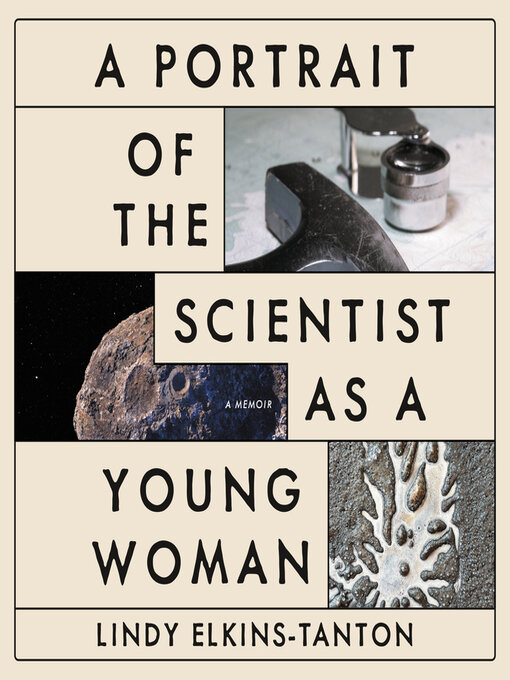Non-fiction Review: Portrait of the Scientist as a Young Woman
How could I not be drawn to a title like that?! Another report from my on-going perusal of semi-randomly selected non-fiction audio books, especially about women doing cool stuff.

Title: Portrait of the Scientist as a Young Woman
Author: Lindy Elkins-Tanton
Publication Info: Harper Audio, 2022. 8hrs 40 min. Hardcover 2022 by William Morrow, 272 pages.
Source:
Publisher's Blurb:
Deep in the asteroid belt between Mars and Jupiter, three times farther from the sun than the Earth is, orbits a massive asteroid called (16) Psyche. It is one of the largest objects in the belt, potentially containing the equivalent of the world's total economy in metals, though they cannot be brought back to Earth. But (16) Psyche has the potential to unlock something even more valuable: the story of how planets form, and how our planet formed. Soon we will find out, thanks to the extraordinary work of Lindy Elkins-Tanton, the Principal Investigator of NASA's $800 million Psyche mission, and the second woman ever to be awarded a major NASA space exploration contract.
The journey that brought her to this place is extraordinary. Amid a childhood of terrible trauma, Elkins-Tanton fell in love with science as a means of healing and consolation. But still she wondered, was forced to wonder: as a woman, was science "for her"? In answering that question, she takes us from the wilds of the Siberian tundra to the furthest reaches of outer space, from the Mayo Clinic, where Elkins-Tanton battled ovarian cancer while writing the Psyche proposal, to NASA's Jet Propulsion Laboratory, where her team brought that proposal to life.
A Portrait of the Scientist as a Young Woman is a beautifully-constructed memoir that explores how a philosophy of life can be built from the tools of scientific inquiry. It teaches us how to approach difficult problems by asking the right questions and truly listening to the answers—and how we may find meaning through exploring the wonders of the universe around us.
My Review:
First off, I am not sure I like the blurb for this one. Yes, the final chapters of the book are about putting together the Psyche proposal, and it's impressive that Elkins-Tanton did that. But to me, the really interesting and important part of the book is the journey that took her there, the "young woman" part of the book (which covers the author's life up to last year, definitely going beyond her youth).
What struck me as the key subject of this book wasn't the Psyche mission and the author's success in later life. It was the struggle to get there, and the continuing battle she's fighting against sexism and racism in science. The real story is one that we must not stop telling: that even now, men who commit sexual harassment or even assault are given a pass if they are powerful enough, bring in enough money to the institution, or have importance in some other way. That the students who are bullied or assaulted have little recourse that doesn't put their careers at risk.
Elkins-Tanton's early-career wandering was due in large part to the rigid way education is constructed, and the ways in which women's accomplishments are diminished. She shares in this book a vision of collaborative work, of inquiry-based learning, that encourages students at all levels to think, rather than memorize. Her work with NASA is important. I think her work in changing the ways we teach is more important.
My Recommendation:
Listening to the audio book I was lost at times as we moved through the author's life. I think this is a good and important book and I recommend you read it on paper.



Much prefer your blurb to that of the publisher who seems to have not even read the darn title.
ReplyDeleteYeah, I think the blurb-writers missed the point.
Delete